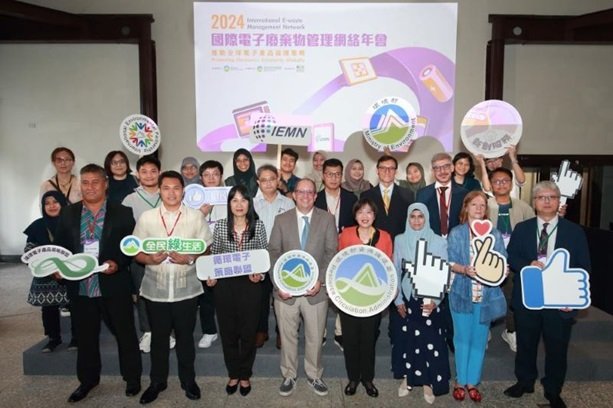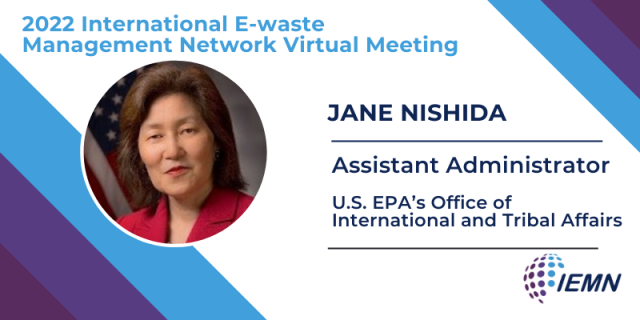International E-Waste Management Network (IEMN)
According to the United Nations, the growing volume of electronic waste, including mobile phones, laptops, televisions, refrigerators, and electrical toys, poses a major threat to the environment and human health. In 2016, only about 20 percent of all e-waste globally was recycled. Certain components of electronic products contain materials that are hazardous when not disposed of correctly and can leach lead and other substances into soil and groundwater. Many of these products can be reused, refurbished, or recycled in an environmentally sound manner so that they are less harmful to the ecosystem and reduce the need to extract or manufacture virgin materials to fabricate new products.
The United States Environmental Protection Agency (EPA) and the Ministry of Environment have collaborated through the International Environmental Partnership since 2011 to build global capacity for the environmentally sound management of waste electrical and electronic equipment (WEEE), which is commonly called e-waste. To support this goal, EPA and MOENV coordinate the International E-Waste Management Network (IEMN) with the network's secretariat SERI. The mission of IEMN is to share best practices and experiences based on a circular economy approach that reduces the negative impact of electronic waste on public health and the environment while promoting positive socio-economic outcomes.
Learn more about our work with the International E-Waste Management Network (IEMN):
2024 IEMN Workshop

October 2024: IEMN with the support of EPA and MOENV hosted the annual meeting to discuss and share information on e-waste efforts. The three-day gathering brought together over 70 participants from Argentina, Brazil, Columbia, Malaysia, Taiwan, Thailand, Tuvalu, Vietnam, the Philippines, and the U.S., to share experiences and techniques on issues related to circular production of electronic appliances and devices.
Jane Nishida, Assistant Administrator, for the Office of International and Tribal Affairs, provided virtual remarks on the importance of managing e-waste and the role that e-waste and other solid waste management issues play in climate change. Participants joined site visits to a facility that recycles electronic waste and appliances, and an electronics refurbisher that resells used electronics. There was also an opportunity for IEMN members to participate in an e-waste exhibition with private sector partners.
2022 IEMN Workshop

September 2022: The 2022 IEMN Virtual Meeting took place with over 50 registered attendees from 33 different countries. The meeting theme was “Accelerating Net-Zero Emission through E-waste Management.”
Ten speakers presented from a wide range of public and private sector organizations, research institutes, and academia, including DSS+, Delta Electronics, and the National Institute for Environmental Studies.
Sessions focused on approaches taken to improve e-waste collections and grow the circular economy, as well as how e-waste is tied to net-zero emission goals. As part of the conference, several IEMN members shared relevant updates and challenges on their e-waste management implementation efforts.
Related Information Resources
- International E-Waste Management Network (IEMN)
- U.S. National Strategy for Electronics Stewardship
- Certification programs for electronics recyclers: R2 Certification and E-Stewards
Contacts
For additional information on EPA's work on e-waste in Asia, contact:
Daniel Lee
U.S. Environmental Protection Agency
Office of International and Tribal Affairs (2670R)
1200 Pennsylvania Ave., NW
Washington, DC 20460
E-mail: lee.daniel@epa.gov
(202) 564-6600
